Helping your child become happy and active within sport
“Youth sports is a business plan that fluffs egos and packs pocket books”
Said Randy Ballard of Illinois University at the GAIN conference in Houston last month. He was talking about how parents try to get their children to specialise in sport too early, without realising the dangers of this.
“75% of kids quit sports by the age of 13, some of which never become physically active again” according to the American Orthopaedic Society for Sports Medicine (AOSSM). Sport has become an ends, rather than a means.
Burnout (where children quit) occurs from 2 main pathways:
- Physical overtraining and lack of sleep.
- Social psychological reasons: the quest for perfectionism and excessive parent/ coach pressure.
As coaches “we can’t separate early/over specialisation from the various societal issues at play that drive over specialisation.”
(As a parent, has anyone told you about how their child competed at a weekend, won a medal, beat so and so, went on a camp with famous person Y, been selected for the TomNoddy under 9s squad? Apart from being an extremely boring monologue, you may feel the pressure to get your child to join the rat race.)
What follows are some tips for parents to help this from happening to your child, alongside some blunt facts for youth coaches (and parent coaches) about promoting early adult led competition.
The 3 big rocks of wellness for your child
Randy used this analogy when looking at the wellness of your child. When filling up a jar of wellness, it may easy to think about the pebbles and grains of sand such as compression tights, protein supplements and sports drinks.
However, the jar should be filled with these 3 big rocks first:
- Sleep
- Nutrition
- Stress Management
Sleep is probably the most important factor. Late practice schedules, cross country/ city commutes and excessive screen times are factors in producing low quality and lessened sleep hours.
Some of the early signs your child may suffering are low back pain and knee injuries. Low back pain is often a psycho-social sign that the child is looking for a way out of the sport.
Randy then used a greyhound analogy about kids being forced to compete for their parents. “What happens if the only reason you chase a rabbit is because your Mum drives you to the track?”
(As a study in what motivates kids, take a step back and watch the crowd at an adult led football match with kids playing. Then watch kids playing football on their own terms and see what the adults are doing.)
A lot of kids like competing, but very few really enjoy competing on adult terms and with adult rules in place.
Randy referred to the “empty dugout syndrome” where parents who have invested time, energy and $$ into their child’s sporting career feel the need to keep that going, even when the child has stopped playing or moved on.
This then leads to stress for the child and sometimes coercion by the parent. Parents can be there for their own needs, rather than the children.
If your child develops an identity of being an athlete, then the transition out of sport becomes more difficult. “Sport is something we do, not something we are”. So every comment, every part of body language and approval related to competing/ participating in sport can be harmful, despite being well meaning.
Gardener or fisherman?
Gardeners amongst you will understand the need for creating the right environment for growth. Good soil, weeding, watering, feeding the plants, as well as planting at different times of the year and in different parts of the garden create a beautiful environment.
The joy of gardening is in the process and then enjoying the results.
Fishing on the other hand is taking fish out of the sea or river and eating them. There is no give, it is all take.
At Excelsior Athletic Development Club we are trying to create a garden of opportunity for young athletes rather than fishing for “talent” from elsewhere in hope of a quick meal.
We never know who is going to make it as a Senior International in sport, nor is that our goal, but by creating the right environment every child and athlete gets an opportunity to grow and develop.
Strangely enough, this environment also creates athletes who succeed at International level (14 year old James Reed, one of our weightlifters, was selected to represent England Golf schools last week).
Compare that to the “fisherman” approach of trying to get a big catch today so that you can win this week without a thought for the future of that child or even the club.
(Thanks to Greg Thompson, a physical education expert from Michigan USA, who also presented at GAIN for the gardening analogy).
Developing Talent
Assuming your child makes it through the wasteland of youth sport and is still participating at 15 years old, what next?
Vern Gambetta gave his thoughts on developing talent for coaches which I will now summarise. This is aimed at coaches and NGBs, many of whom still hold antiquated ideas of Talent Identification and pick early maturers over people with potential.
“Talent = Potential”
Youth prodigies do exist and talent definitely matters, however there are no guarantees in sport so talent is only potential. Realising that potential means a process has to be in place and is sustainable.
- Talent Spotting
- Talent Identification
- Talent Acquisition
- Talent Development
-
Talent Confirmation
- Talent Realisation and Refinement
- Talent Retention
Talent is comprised of Heart, Body and Mind.
These three areas can be developed and encouraged.
Randy Ballard made a counterpoint to this in his seminar. That referring to athletes as “Talent” is dehumanising.
As an NGB is your “Talent Development” programme a road map for developing a human or for poaching ivory?”
Summary
The seminars by Randy Ballard, Vern Gambetta and Greg Thompson were different but similar. All three focussed on the importance of development and growth.
The very valuable lessons I learnt working with the Sport England funded “South West Talent programme” with Paula Jardine helped shape my thoughts on working with youth athletes: “The Why”.
The mistakes I have seen within NGBs (and are still being made in a Talent Id Bun Fight) and at Millfield School whilst working there for 5 years have helped me from making those same mistakes with our club athletes.
No child should be cast out and thrown on the scrap heap, nor be left to crawl there on their own because of mistakes made by adults in whom they place their trust.
These seminars and discussions at GAIN over the last 6 years have been invaluable in changing what I do with all the people who come to our club. Thanks to everyone at GAIN for helping me and our athletes.

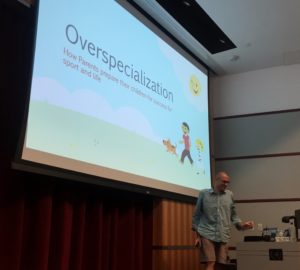

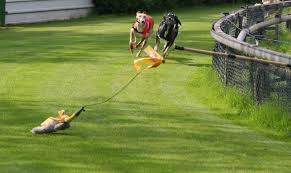

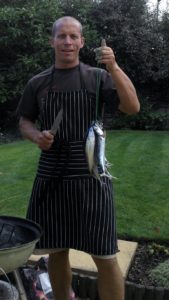
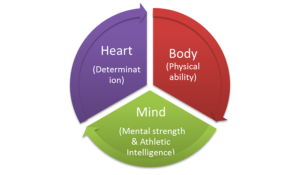
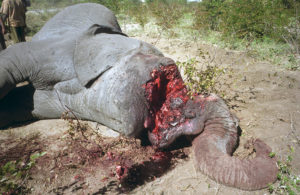
A very good set of points and an interesting read. Thanks for sending me the link. Now to get more parents and “coaches” to realise this.
We can only keep doing the best we can
Very interesting and true. I will pass this on to other people who should know what this is about.
Thanks Rudy.